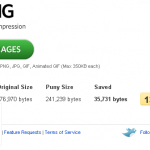Exploring Modern eCommerce Solutions
Traditional brick-and-mortar businesses have the opportunity to capture large marketplaces beyond a local community. Modern eCommerce platforms provide affordable solutions for expanding a business that has traditionally sold products in actual storefronts. The development of open source platforms has further driven down the costs of professional-quality website creation for brick-and-mortar shops.
Website developers and digital marketing experts utilize every possible resource that’s available for eCommerce development. Surely, such professionals are interested in attracting new clients by offering low prices. Free IT consultations are typically offered to merchants who are entering the virtual retail world for the very first time. During the consulting phase, clients receive thorough plans for the development of online stores.

A major challenge that any online store faces is attracting customers. Digital marketing agencies specialize in search engine optimization solutions that guarantee to bring in masses of online shoppers. Sponsored search might be used to attract customers who search for specific items or categories of merchandise. The highly targeted marketing campaigns optimize sales conversions because every visitor most likely has intentions to purchase something specific that’s listed on the store. An Internet marketing expert such as Brent Franson and other SEO specialists are examples of IT gurus who provide eCommerce solutions.
Brick-and-mortar businesses are already familiar with payment processing systems that are integrated into cash registers. However, online stores have slightly different systems for collecting credit card payments from customers. Cyber security should be a major priority for online merchants who want to minimize fraud. Therefore, online shop owners need to spend money on software that processes payments securely. Shoppers should be prompted to enter full credit card information, including security codes that are on the back. Online merchants also need to make sure that credit card data doesn’t get stolen. Most eCommerce solutions are linked to secure databases that store all payment information.
A virtual shopping cart is also an important component of an eCommerce operation. Merchants should have user-friendly carts that allow for one-click addition and removal of items. Additionally, shopping carts should make it easy for shoppers to order bulk purchases by typing in the quantity of items desired rather than making individual clicks.
Online stores need to establish relationships with companies that provide shipping services. The latest tracking technology can be used to follow the movement of packages between a warehouse and a customer’s door. Online merchants need to reassure shoppers that all deliveries can be tracked precisely and also insured in case of any losses or damages along the way.
Mobile technology should also be integrated into online stores. These days, people expect to make purchases directly from smartphones or tablets. Mobile-friendly store layouts should be configured to properly display all of the products on sale. Online shops could lose a lot of customers who get frustrated with navigating virtual catalogs that are full of technical glitches.
Modern eCommerce marketing solutions usually include text messages that are delivered directly to mobile devices. Along with emails, such messages could have digital promotional codes that might be applied online and also in brick-and-mortar locations. For example, a customer can download a QR code for a digital coupon that may be scanned at the checkout in an actual shop.





